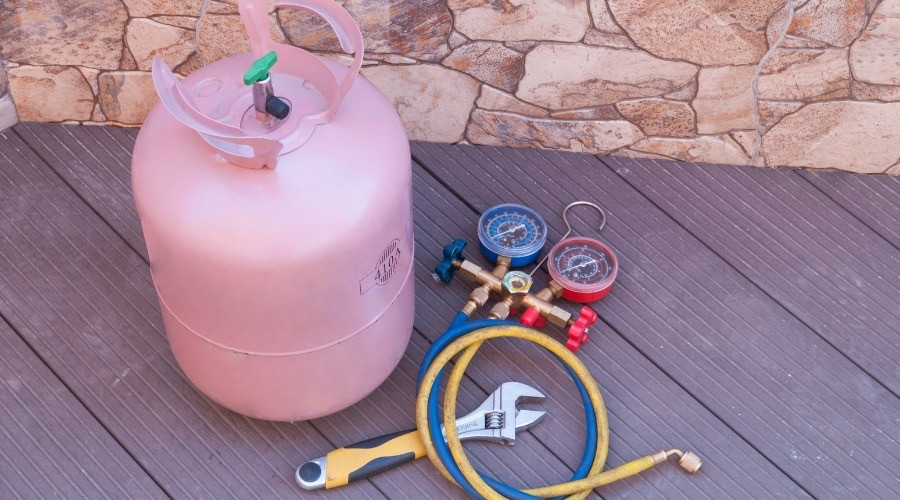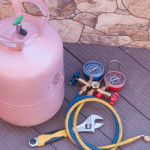Refrigerant and Signs of Refrigerant Issues
Refrigerant plays a vital role in maintaining efficient cooling within an HVAC system. Rising energy costs and complicated repair needs often trace back to refrigerant-related problems. By understanding how refrigerant works, it becomes easier to identify system inefficiencies and prevent costly failures. A well-maintained refrigerant system leads to improved comfort and better long-term performance.
How Refrigerant Works in an Air Conditioning System
Refrigerant serves as the heat transfer agent in an air conditioning system, absorbing heat from indoor air and releasing it outside. The process involves a continuous cycle of phase changes between liquid and gas. During operation, the refrigerant circulates through the evaporator coil, compressor, condenser coil, and expansion valve.
Heat is absorbed at the evaporator as the refrigerant changes from liquid to gas. The compressor then increases the pressure and temperature of the vapor before it flows to the condenser coil, where heat is expelled into the outdoor air. The refrigerant returns to liquid form and cycles back through the system. This process, according to the U.S. Department of Energy, allows modern AC systems to move more thermal energy than the electrical energy they consume.
Signs of a Refrigerant Leak or Overcharged Refrigerant
 Symptoms of refrigerant leaks often include weak cooling performance and longer cooling cycles. Ice may form on evaporator coils when refrigerant volume becomes too low, leading to reduced airflow and potential damage. Leaking refrigerant can also produce hissing or bubbling noises around connection points or lines.
Symptoms of refrigerant leaks often include weak cooling performance and longer cooling cycles. Ice may form on evaporator coils when refrigerant volume becomes too low, leading to reduced airflow and potential damage. Leaking refrigerant can also produce hissing or bubbling noises around connection points or lines.
Elevated energy bills often signal that the system is overworking due to improper refrigerant levels. Both overcharging and undercharging cause similar performance issues, including reduced cooling output and increased power consumption. These problems can damage the compressor and shorten system life. Refrigerant must be charged according to the manufacturer's specifications to maintain balanced operation.
How to Avoid Refrigerant Issues
 Refrigerant overcharging can cause pressure buildup that harms critical HVAC components. Accurate measurement using specialized gauges ensures the proper charge level. Technicians reference system specifications before making any adjustments to prevent under- or overfilling.
Refrigerant overcharging can cause pressure buildup that harms critical HVAC components. Accurate measurement using specialized gauges ensures the proper charge level. Technicians reference system specifications before making any adjustments to prevent under- or overfilling.
Professional service includes more than refilling refrigerant. Leak detection, pressure testing, and system evacuation are often necessary to restore proper function. According to EPA data, a significant percentage of HVAC failures are attributed to refrigerant mishandling. Routine maintenance helps avoid these issues and improves overall energy efficiency.
Preventive inspections allow technicians to identify early signs of refrigerant loss or contamination. Coil cleaning and thorough system evaluations reduce stress on refrigerant lines and connection points. Industry reports show that systems receiving professional maintenance experience far fewer refrigerant-related failures. Investing in regular service extends the life of the cooling system and protects against major repair costs.
About Chad's AC Direct
Chad's AC Direct is a quality HVAC solutions company that serves Montgomery County and beyond. They offer expert installations, same-day service, and trusted technicians. Call them today for air conditioning repairs in Montgomery, AL.









